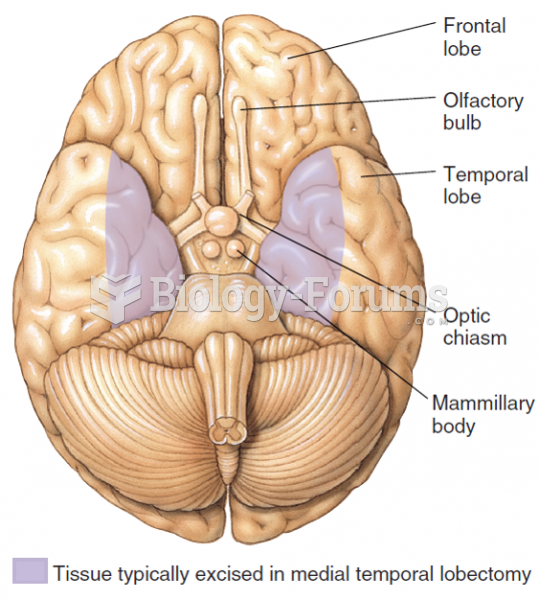|
|
|
More than 50% of American adults have oral herpes, which is commonly known as "cold sores" or "fever blisters." The herpes virus can be active on the skin surface without showing any signs or causing any symptoms.
It is difficult to obtain enough calcium without consuming milk or other dairy foods.
Cancer has been around as long as humankind, but only in the second half of the twentieth century did the number of cancer cases explode.
More than 20 million Americans cite use of marijuana within the past 30 days, according to the National Survey on Drug Use and Health (NSDUH). More than 8 million admit to using it almost every day.
Stroke kills people from all ethnic backgrounds, but the people at highest risk for fatal strokes are: black men, black women, Asian men, white men, and white women.
 Polycystic kidney disease. Notice the presence of numerous fluid-filled sacs, or cysts, in these kid
Polycystic kidney disease. Notice the presence of numerous fluid-filled sacs, or cysts, in these kid
 Religion can promote social change, as was evident in the U.S. civil rights movement. Dr. Martin ...
Religion can promote social change, as was evident in the U.S. civil rights movement. Dr. Martin ...





